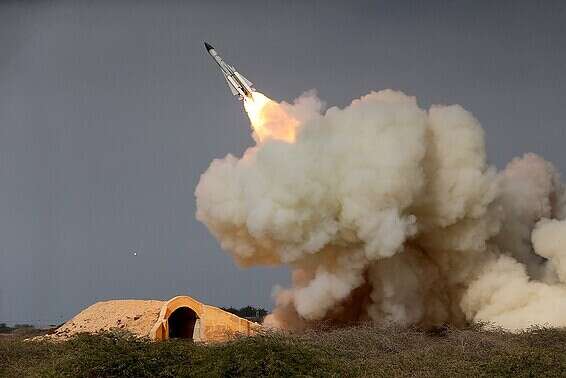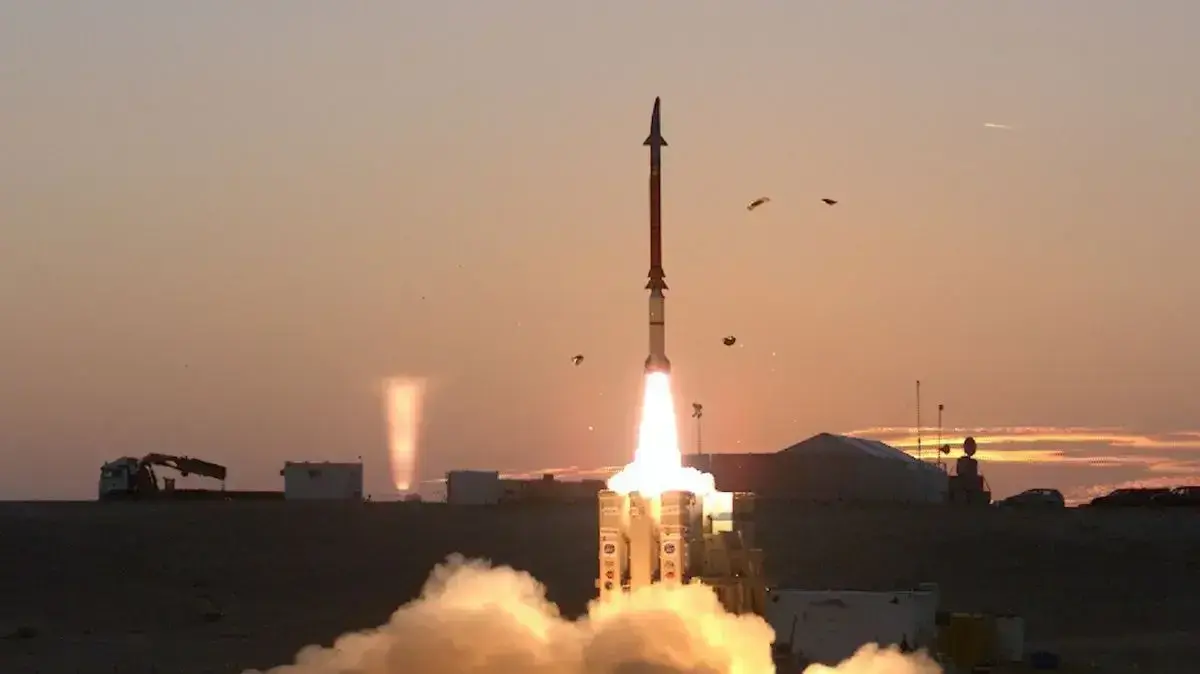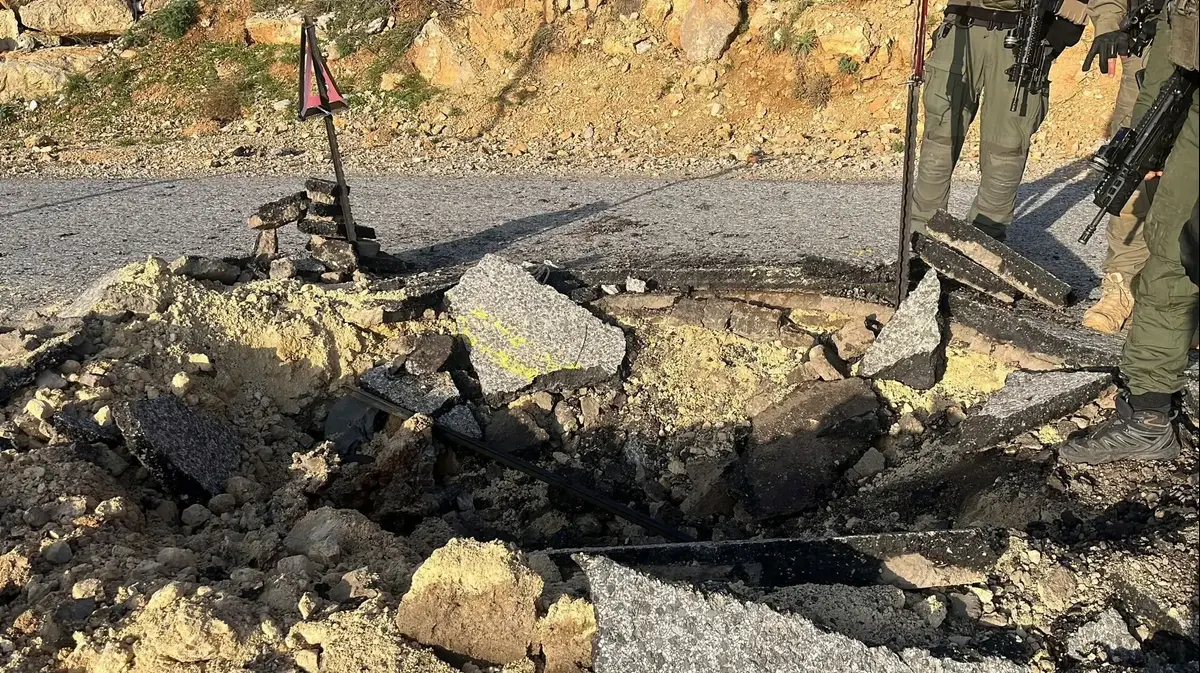The failed interception attempt • Syrian self-confidence that could lead to escalation • And the fear of the worst-case scenario: Damage - even if unplanned - to a civilian plane • Sure it will suffice • Interpretation
It is not allowed to change the rules of the game in the northern arena
Photo:
Yossi Zeliger, Koko, AFP
Preliminary investigations conducted yesterday (Thursday) in the IDF revealed complete certainty that the surface-to-air missile that landed late at night in the Negev was not intentionally fired so that it would land on Israeli soil. Contrary to initial fears that this was an intentional attack on Israel, Was in a "leak" - a missile designed to hit Air Force planes and continued to fly into Israeli territory.
Such missile launches are routine after attacks attributed to the Syrian Air Force.
Also on Tuesday night there was such an attack, aimed at particularly high-quality targets in the northern arena.
The Syrian air defense system responded by launching about ten missiles of several types at the air force planes that carried out the attack.
All the missiles missed the planes, but one of them - an SA-5, continued to fly towards Israel and its fragments landed in the Negev.
This is an unusual event.
The Syrian missiles usually destroy themselves in the air, and their fragments land in the sea.
In a previous case that occurred about four years ago, an interceptor "arrow" was fired at a Syrian missile that continued to fly in the direction of Israel.
An attempt was also made on Tuesday to intercept the Syrian TKA; an interceptor was fired at the attacking missile, but was unable to hit it.
This event should bother Israel for several reasons.
The first is the urgent need to find out why the interception failed.
Is it due to the interceptor's wrong choice, or other reasons.
The flight description of a surface-to-air missile is particularly challenging because the missile changes its flight path during flight and is constantly looking to "acquire" new targets.
Although the air defense system has the most advanced interception systems in the world, they were developed to deal with the threat of missiles and rockets, and are now required to respond to new threats as well - from cruise missiles and UAVs to surface-to-air missiles.
The second reason is the fear that someone in Syria will think there is a new patent here, and will start deliberately launching TKA in a southerly direction. For advanced missiles such as the one that landed in the Negev within a range of hundreds of kilometers; they are inaccurate Through them the residents of Israel, and statistically also charge a price per capita or property.
The third reason is the confidence that such incidents might give to the Syrians, and to their Iranian patrons. The balance in the northern arena is unequivocally in Israel's favor: in the face of thousands (!) Of successful attacks in recent years, the Syrians have managed to hit only one Israeli plane, which its pilots were forced to abandon. The latest incident may lead Damascus to believe that a new balance of deterrence can be established with Israel. Therefore the destruction of the battery that launched the missile that landed in the country (and some additional batteries) is critical not only to thwart an immediate threat, but also to charge a price and maintain the existing deterrent balance.
And yet, the Syrians will soon fill their warehouses with new batteries and missiles, courtesy of Russia, which continues its cynical game in the northern arena.
Although Moscow claims that these weapons are intended for the self-defense of the Assad regime, in practice it may lead to an escalation from which the Russians themselves warn.
The advanced TAKA batteries threaten not only Air Force aircraft, but all civilian aircraft in the arena (including the one that flies to and from Israeli skies), and a misalignment could lead to severe escalation.
Warnings in this spirit have been sent to Russia many times in recent years, but the Moscow administration seems to prefer financial gain over any other consideration.
It is possible that Russia is also seeking to curb to some extent what it perceives as Israeli aggression in Syria, also in order to strengthen its position as a mediator between the parties.
Precisely because of this and against the background of the recent incident - and when at the same time the powers are rushing towards the renewal of the nuclear agreement with Iran - Israel must present to Syria finished facts, and not allow a change in the rules of the game in the northern arena. This is critical for every possible reason, even if it necessitates intensifying offensive activity in the current sensitive period.














